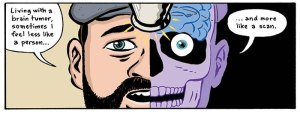As my plane approached the Yangon (Rangoon) airport I began to get nervous about the level of surveillance and control I would be facing in the coming ten days. Would they search the files on my computer? Would they confiscate the dozen bagels I was bringing in as a gift? And most of all, how would they react when this supposed “tourist” was picked up by an official U.S. Embassy van?
Fortunately, those specific fears were baseless; my entry into the country couldn’t have gone more smoothly. My passport and visa were examined, I picked up my luggage without a cursory look, and — before I could acknowledge that after over 30 hours of travel I had actually made it all the way across the world — I was whisked into the arms of Wesley Hughes, the Embassy’s Cultural Affairs Specialist. From Wesley’s name, I had expected to find a typical foreign services type, a WASP Yale graduate or the like. To the contrary, he was a jolly Burmese gentleman (with a fascinating family history, which I hope to get into in a future post).
The Embassy van, however, was exactly what you’d have predicted: a Chevy SUV (with the ironic nickname “Rolling Thunder”), probably the only such car in the entire country. (Someone told me later that it cost upwards of $100,000 to import a Western car into Burma — all of which money went directly to the military government). The rest of the cars on the road were mostly a sad collection of clunkers patched together from spare parts.
It was a quick drive to the Embassy, and in my bleary state I barely had time to take note of my surroundings — other than that Yangon seemed quite similar in feel to other Southeast Asian metropolises like Bangkok, Kuala Lumpur, and Jakarta: chaotic, dusty, and polluted (though no motorbikes — which I’ll also get into later). I also saw no gratuitous examples of a military presence. It wasn’t like there were armed soldiers or police on every street corner.
Security was quite extensive at the Embassy, however. The van had to pass through a double-gate and undergo a complete inspection: checking the doors, the hood, and including the use of what was apparently a giant mouth mirror to peer under the van for — what? — bombs? Once inside the Embassy grounds, I surrendered my passport to a crisply appointed Marine guard behind bulletproof glass. Only then was I officially inside.
Wesley then left me in the hands of his superior Blake (the guy I’d had the less-than-secure phone call with some days before), who was more the type I expected: tall, handsome, and friendly in an all-American way. I gave Blake the bagels, then it was off to meet Larry Dinger, the Chargé D’affaires. Dinger is ambassador in all but name, the U.S. having withdrawn our ambassador some years earlier in protest of the Myanmar government’s undemocratic ways. In fact, Dinger has previously been U.S. ambassador to the Republic of the Fiji Islands, the Republic of Kiribati, the Republic of Nauru, the Kingdom of Tonga, Tuvalu, and the Federated States of Micronesia! (So I suppose this posting was taking Dinger outside of his comfort zone of the South Pacific…) The meeting was perfunctory, though he had a copy of A.D., and I felt quite honored to be given the time, reminded that I really was in the country in an “official” capacity. Then it was off to my security briefing.
One thing I noticed right away was that whenever Blake left the cultural affairs department to visit the political or security division, he had to leave his cell phone in an outside locker. He explained that some people had the technology to remotely turn on your mobile phone and use it as a listening device. He didn’t think anyone in Burma had that kind of capability, but the policy was “better safe than sorry.”
Joe the security officer was a hairy fellow and, if you ask me, a bit of tool. He told me that as an American the “number one rule” was “city buses are forbidden,” meaning I wasn’t allowed to take one. Joe explained that every six months or so “some group” set off a bomb on a bus, usually leaving “zero or one casualties. But let’s not have that casualty be you. Just take a taxi.” OK, sir.
Joe also reminded me that the Internet was heavily monitored, and told me to expect that my hotel room would be bugged. “I’d tell you more if you had security clearance, but I can let you know that they’re not exactly the KGB here. Often the left hand doesn’t know what the right hand is doing.” He kept hinting that he could tell me more if I had security clearance, but, since I didn’t…
Joe seemed to be starring in his own spy movie.
And even though my bagels had made it through customs, my paranoia was starting to come back.
P.S. Again, some names have been changed to protect them from whomever might be reading this for the "wrong" reasons.
 There’s a new piece out this week that I haven’t had a chance to write about: “A Scanner Constantly,” my new collaboration with writer Adam Bessie. He and I have worked on a couple of prior pieces, but this one is the most involved and the one closest to my heart.
There’s a new piece out this week that I haven’t had a chance to write about: “A Scanner Constantly,” my new collaboration with writer Adam Bessie. He and I have worked on a couple of prior pieces, but this one is the most involved and the one closest to my heart.
 I was reading a
I was reading a